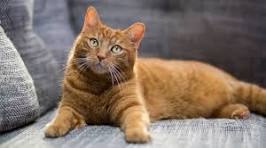ASEAN HEADLINE-ANIMAL CARE | Cats kept in HDB flats should be sterilised, urges Nee Soon MP Louis Ng

SINGAPORE – People who abuse animals may soon face stiffer penalties, while service providers found doing so may be looking at a lifetime ban on offering animal-related services.
These are among the proposals that Nee Soon GRC MP Louis Ng intends to make at an upcoming Parliament sitting, through an “extensive” White Paper to strengthen animal welfare in Singapore.
With the ban on pet cats in Housing Board flats to be lifted from September, he also said he would push for the sterilisation of pet cats to become mandatory.
At a forum on animal protection policies on July 14, Mr Ng was joined by Minister for Home Affairs and Law K. Shanmugam, who is also a Nee Soon GRC MP, to discuss ways to curb animal abuse, given the recent surge in animal cruelty and welfare cases.
Mr Ng said the White Paper he plans to submit to the Government will propose increased penalties for cases of animal abuse, as well as more clearly define the duty of care that those who own or work with animals must provide.
Currently, pet owners as well as animal-related businesses and shelters have to provide a positive duty of care to give these animals adequate food and water and ensure they are not physically handled in a manner that causes them pain, among others.
Mr Ng said he is looking into drafting more detailed and specific codes of animal welfare for pet shops and dog breeders, so that it would be easier to prosecute people who commit animal abuse.
The dialogue at Nee Soon East Community Club was attended by various animal welfare groups, such as the Society for the Prevention of Cruelty to Animals (SPCA) and the Animal Concerns Research and Education Society (Acres).
The issue of animal abuse by service providers came up strongly in the conversation. Mr Ng said he intends to press for a lifetime ban on owning animals or working in an animal-related business for those guilty of animal abuse, beyond the current disqualification period of up to 12 months.
He will also suggest mandating the sterilisation of cats living in HDB flats to prevent them from caterwauling, or the howling that cats use as mating calls.
This will reduce the number of residents who complain about noise disturbances from such cries and help ensure the smooth roll-out of the upcoming cat management framework, he said.
The White Paper will be extensive as it will take in policy suggestions and feedback from the forum, said Mr Ng, who founded Acres when he was an undergraduate.
He will also push for a stronger focus on animal welfare in school curricula and better enforcement efforts to ensure that dog breeders adhere to guidelines.
“I would say that this is a little bit sad – this will be the first motion in Parliament on animal welfare in the history of Singapore,” he added.
…
At the dialogue, the two MPs fielded questions on animal welfare, such as the distress pigeons are put under during culling exercises.
Mr Ng noted that other methods such as habitat modification, reducing access to food sources and bird-proofing coffee shops had also been rolled out at the same time.
Mr Shanmugam said many residents face inconveniences due to the widespread growth of the pigeon population, and might think their MPs and town councils are not doing enough if immediate action is not carried out.
This is as other measures like cutting down on food sources and improving public education – to stop people from feeding pigeons – take a longer time to bear results, and meanwhile, town councils will respond to complaints by introducing culling.
“The town council… is answerable to the MPs, and MPs are answerable to people,” he said. “And these town councils who announced culling are reacting to the majority (view).”
…
Another question was whether animal welfare groups could be empowered to support enforcement efforts, which could reduce the response time when an abuse case is reported.
Mr Shanmugam cautioned that this would be problematic as it would vest authority in people who may not be trained to abide by a clear set of guidelines. But it may be possible to train a small group of accredited members of such organisations to function as an ancillary service, he added.
SPCA executive director Aarthi Sankar told The Straits Times that the organisation is looking at ways to expedite prosecution and enforcement action in cases of animal abuse.
Citing the Animal Welfare Board of India as an overseas example, she said the board – comprising professionals from the veterinary industry and animal welfare groups – advises the Indian government on related policies, since animals cannot advocate for themselves.
“By having a council like this, perhaps the government and policymakers can also be better advised on such issues,” she added.

@[email protected]



 Memento Maxima Digital Marketing
Memento Maxima Digital Marketing






